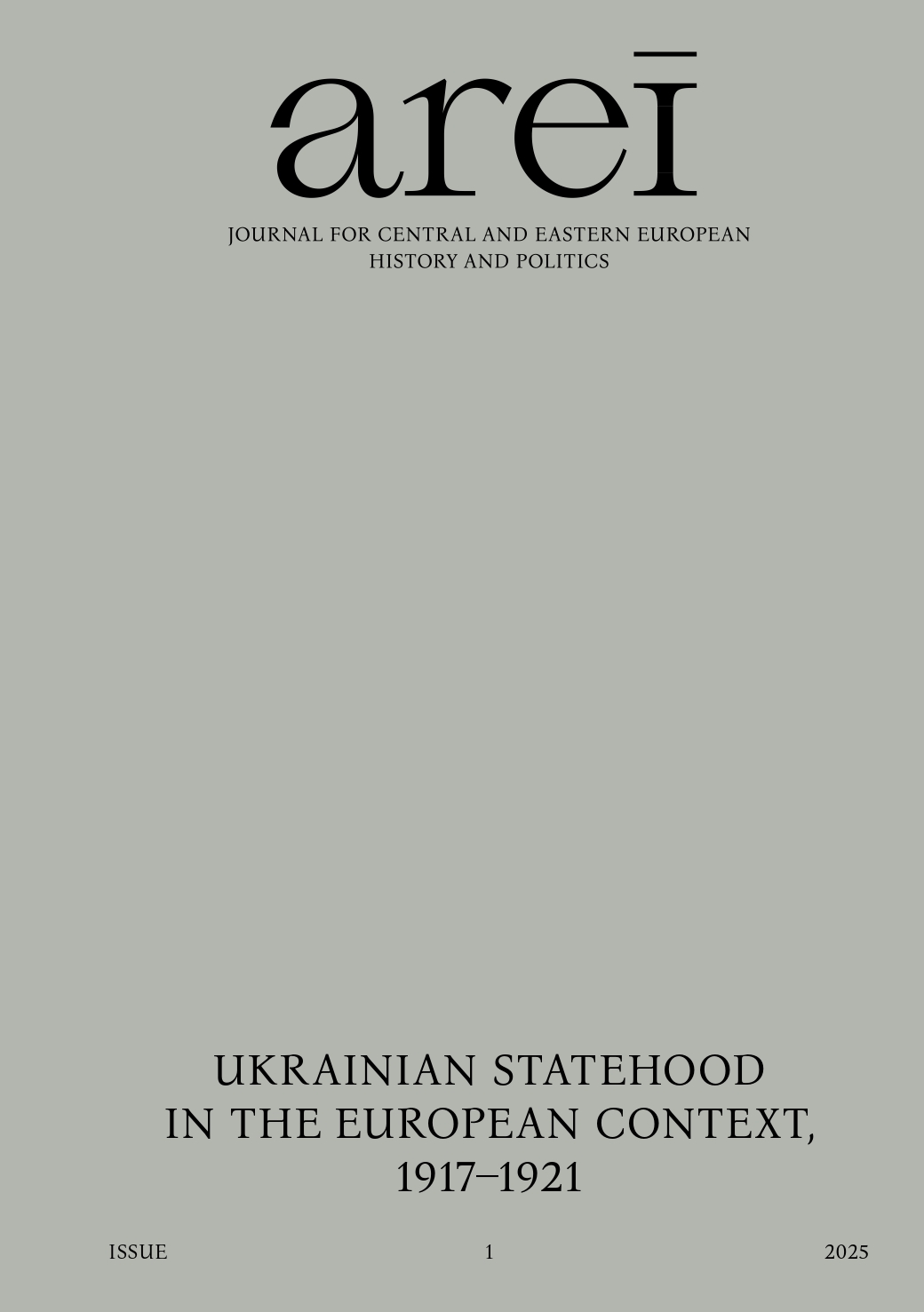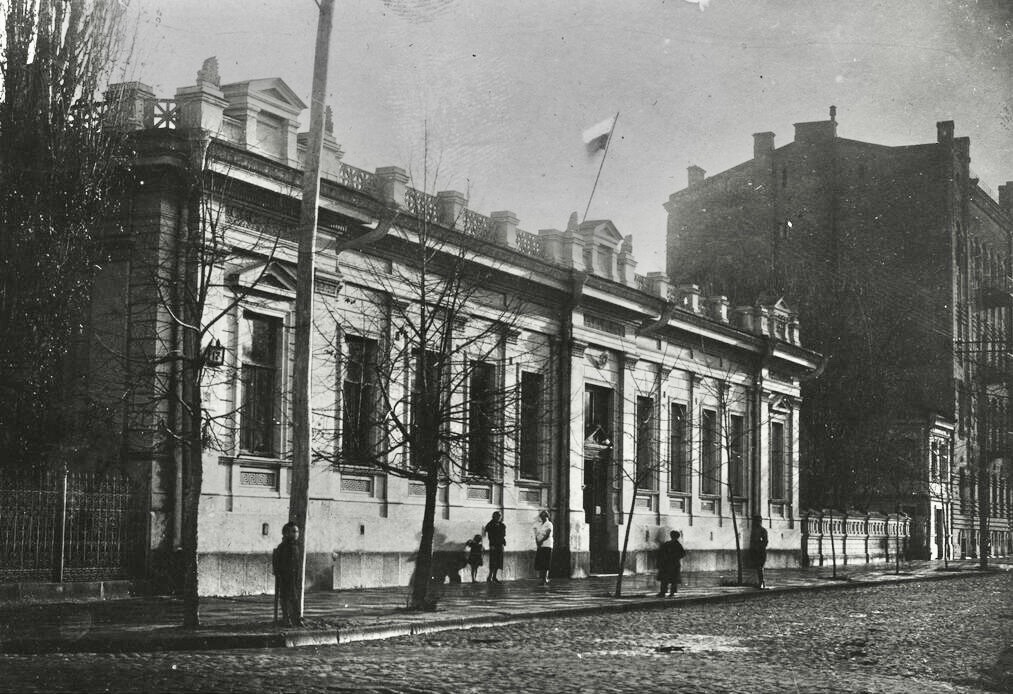The appearance on the book market of memoirs by high-ranking Russian Foreign Ministry officials has been a rarity in recent years, so the recently published memoirs of Vitaliy Churkin, Russia’s former Permanent Representative to the United Nations and one of Russia’s most experienced and talented diplomats, are particularly noteworthy. Gorbachev’s perestroika heralded a new generation of extremely bright individuals, a large number of whom came to the fore in public life because of the collapse of the USSR. With the departure of some of the old Soviet nomenklatura, unprecedented career opportunities opened up for young people. Today, it is hard to imagine a 40-year-old deputy to the Russian Foreign Minister, but back in the early 1990s it was common practice.
Churkin’s early start and impressive career made him a part of history. He was witness to and sometimes an actor in negotiations on decisive topics in international relations: the nuclear disarmament process, the end of the Cold War, and the armed conflicts in Yugoslavia, Syria, Libya and Ukraine, to mention a few. Undoubtedly, he could have written a separate volume on each of these topics, but unfortunately Churkin left behind only this book. According to his relatives, he had just managed to finish Trudnosti perevoda before his unexpected death in February 2017, as he died one day shy of his 65th birthday. The only involvement his widow, Irina, had with the book was to add the photographs of her husband with the politicians and diplomats he had met throughout his career.
In his book, Churkin describes his professional journey to becoming a diplomat, beginning with his early student days and culminating in his work as Permanent Representative of the Russian Federation to the United Nations. Immediately upon graduation, he had the opportunity to work with high-ranking Soviet officials, such as Nikolay Podgornyi, the Chairman of the Presidium of the Supreme Soviet of the USSR, and Anatoly Dobrynin, the Soviet Ambassador to the United States. However, his rise to prominence was boosted by the Soviet Foreign Minister and co-creator of perestroika, Eduard Shevardnadze. Churkin served as his press secretary and was quickly promoted to director of the Soviet Foreign Ministry’s Information Department. He generally shared his superior’s ideas and promoted glasnost within the agency. It is with a measure of great pride that Churkin describes his contribution to Gorbachev’s seminal work Perestroika: New Thinking for Our Country and Our World, which outlined the key tenets of the USSR’s new political course.
In addition to Shevardnadze, Churkin pays tribute to another figure who played a crucial role in his development as a diplomat: Sergey Lavrov. He is mentioned repeatedly in the text in an extremely complimentary manner, which is probably in part because – thanks to his acquaintance with Lavrov – Churkin managed to retain senior positions within the Foreign Ministry during the Kozyrev staff reshuffle in the early 1990s, which reduced[1] some Foreign Ministry officials to despair.
Generally, the vast majority of the colleagues and superiors Churkin encountered during his career are described in either neutral or positive terms. However, the author of these memoirs fails to maintain ‘diplomatic neutrality’ with regard to two individuals: Russian President Boris Yeltsin, and Russian Ambassador to the United States, Vladimir Lukin.
Churkin was politically at loggerheads with Boris Yeltsin. He considered the Belovezh Accords unconstitutional and accused the Russian president of hastening the collapse of the USSR in order to come to power as quickly as possible. Interestingly, he does not judge the constitutionality of Yeltsin’s decision to order tanks to shell Russia’s White House in October 1993. Although Churkin occasionally shared his political views with the press, this did not affect his position at the time because the Yeltsin administration was poor at monitoring statements made in public by his top officials.
Churkin found Yeltsin’s distrust of the Foreign Ministry repugnant. Yeltsin’s distrust was justified by the fact that Soviet diplomats did not particularly resist the masterminds behind the August 1991 coup. So, in the early years of his presidency, Yeltsin actively advocated reducing the number of Ministry staff, which, of course, did not please any of them. Churkin was also displeased with the Russian president’s impulsiveness and lack of reserve. In early August 1995, for example, Yeltsin, who was notorious for his reckless behaviour, disclosed to journalists confidential information about secret negotiations to be held in Moscow between the Serbian and Croatian leaders, Slobodan Milošević and Franjo Tuđman, which derailed Russian diplomatic efforts to build bridges between the conflicting sides in Bosnia.
Churkin was disturbed to receive complaints about the inappropriate behaviour of the Russian president during international summits, which often left foreign partners bewildered and perplexed. Against this backdrop, it seems unlikely that Churkin would have enjoyed the interventions of his successors as Russia’s permanent representatives to the UN Security Council, in speeches that went far beyond diplomatic etiquette and were overly familiar.
Churkin’s discontent with Lukin is of a somewhat different nature. The author of the book criticises Lukin for not attending fully to his duties as Russia’s Ambassador to the United States and for being a diplomat who preferred to spend his weekdays at his dacha rather than at his workplace. Furthermore, Churkin clearly suspected Lukin of being overly jealous of his popularity and diplomatic success in the Yugoslav settlement process.
At the launch event for Churkin’s book, Lavrov described him as someone who always had an opinion of his own. However, Churkin does not go so far as to make any bold statements regarding Russian foreign policy under Vladimir Putin. On the contrary, when it comes to the post-2000 period, the book mirrors the Kremlin’s official position and does not deviate from it in any way. Therefore, the book is likely to disappoint those who had been expecting any new revelations. Churkin, like a soldier, does not undermine the decisions taken by the country’s political leadership or reflect on what could have been done better. In general, his outline of post-2013 events is effectively done in a copy-paste style, with profuse quotations from his public speeches and UN Security Council resolutions, which undoubtedly affects the way in which the text has been received. I think this is the first time I have read memoirs that contain such a copious compilation of the author’s own speeches. Churkin occasionally dilutes the accumulation of self-citations with tall tales and amusing anecdotes. Were it not for these, the book could be described as a collection of abstracts of Kremlin propaganda which could have been compiled by virtually any employee of the Ministry of Foreign Affairs of the Russian Federation.
As Churkin’s wife admits, the book might have been completely different if he had written it once retired rather than squeezing time out of his busy schedule of meetings and appointments, in which case the section of the book devoted to the events of 2000–2017 would probably have been less formal and tedious.
Regarded by Churkin as the greatest tragedy in Europe since World War II, the resolution of the armed conflicts in former Yugoslavia is at the core of the memoirs. He was clearly sympathetic to the Serbs (and Milošević personally), but in the book he still outlines instances of non-compliance by the Serbian side, such as the 1994 shelling of the city of Goražde. Even when Milošević abandoned negotiations, Churkin blamed the organisers rather than the Serbian leader, accusing them of being unwilling to see negotiations through to their conclusion. However, Churkin fails to address why the Kremlin had provided substantial political support to Belgrade for years and he fails to acknowledge events for what they really were – that is, that the genocide in Srebrenica was genocide and the Serbian war criminals were criminals.
Another key theme of the book is the accession of Central and Eastern European (CEE) countries to NATO. Without going into the details here, in the book Churkin alleges that Gorbachev was assured that the Alliance would not expand. While unconvincing attempts are sometimes made in academic circles to elaborate on the myth of alleged ‘security guarantees’ given by the West,[2] there is no doubt that there were no negotiations between Moscow and Western leaders on the part of the CEE countries concerning NATO membership, and the Alliance made no promises[3] to Moscow. Moreover, Gorbachev himself repeatedly stated that the USSR would not interfere in the internal affairs of the CEE[4] countries under any circumstances, and there were no negotiations on this issue with NATO whilst he was President of the USSR.
However, Churkin follows the general line of today’s Russian leadership in insisting that the opposite was in fact the case, although he fails to provide any proof of this. In an act of diplomatic doublespeak, he asserts that when a communiqué outlining the prospect of the enlargement of the Alliance was adopted at the NATO ministerial meeting of 1 December 1994, this came as a great surprise to Moscow. But it could hardly have come as a surprise, especially after Yeltsin’s visit to Poland in August 1993, where he and Polish President Lech Wałęsa signed a joint statement saying that Russia had nothing against Poland joining the Alliance. Churkin called the document ‘an unpleasant surprise’, as he believed the only reason why Yeltsin would have signed the document was that Wałęsa allegedly ‘threw a tantrum’ at him. Nevertheless, the CEE countries were already actively raising the question of their NATO membership, and the Kremlin, of course, was aware of this. Interestingly, Churkin attributes Russia’s negative attitude to NATO enlargement to the need to ‘regulate the distance between the Alliance and CEE countries’, but why? Churkin himself had already admitted that the expansion of the Alliance was not in and of itself an anti-Russian idea. Furthermore, Yeltsin had not ruled out Russia itself one day becoming a member.
The author is taciturn when it comes to the 2008 Russian–Georgian armed conflict in Georgia. In line with the official narrative, he argues that it was Georgia, encouraged by Washington, that instigated the conflict and invaded South Ossetian territory. Extensive literature has been published which calls this line of argument[5] into question. In addition, there are no documents confirming that the US was behind the ‘Georgian aggression’. On the contrary, according to the memoirs of former US Secretary of State Condoleezza Rice, Washington persuaded Mikheil Saakashvili not to react to possible provocations by separatists and the Russians.[6]
Commenting on the actions of the Russian troops, Churkin sees their actions as justified and reasonable. In doing so, he refers to Article 51 of the UN Charter on a state’s right to self-defence. However, he disregards the fact that Georgia did not attack a Russian state: CIS peacekeepers were attacked. Such a position does not hold up to criticism as there are no precedents in international relations of cases in which a country that lost its peacekeepers somewhere abroad treated that loss as an attack on its own territory.
Churkin comments readily on Ukrainian affairs, sharing Russian President Putin’s thesis that Russians and Ukrainians are one people. He devotes a lot of space in his book to Euromaidan, although his description of those events is completely muddled and illogical. For example, he blames the bloody climax to the Revolution of Dignity on snipers working with the protesters and names ‘fear of physical reprisals’ as the reason why Ukrainian President Yanukovych fled the country, even though much of the security services, police and army remained loyal to him.
All in all, the section on Ukraine is the most controversial part of the book. The author turns a blind eye, for example, to gross violations of the Ukrainian constitution during the so-called referendum in Crimea, while positioning himself as in support of resolving the Ukrainian political crisis from within the constitutional framework. In this sense, the account of the UN Security Council meeting on 3 March 2014, in which Churkin read out loud to the world a most unusual document – an appeal from Yanukovych to Putin to bring Russian troops to Ukraine ‘to restore the rule of law, peace, order, stability and protect the people of Ukraine’ – is also interesting. Whilst presenting this appeal to the UN Security Council meeting, the Russian diplomat withheld the fact that it is the exclusive constitutional right of the Ukrainian parliament, not the president, to authorise the deployment of foreign troops.
After a Buk missile, fired from separatist-controlled territory, had been used to down a Malaysian airliner in the skies over Ukraine, Churkin commented on the incident more frequently than any other Russian official. The book clearly shows that Moscow spared no effort to remove the investigation into the MH17 crash from within the framework of the Chicago Convention and create special formats for it within the UN and OSCE, where the Kremlin had plenty of bureaucratic means (other than simply vetoing) to influence it and fend off any charges. Although Russia had no rights under the Chicago Convention to conduct the investigation, Churkin insisted that the investigation could only be ‘truly international’ if Russian experts were involved in it.
Churkin presents a one-sided and, one might say, biased view of the UN Security Council’s debate on the use of chemical weapons in Syria. On this issue, in full accordance with Moscow’s general line, he covers up for the Syrian government of Bashar al-Assad, which, prior to July 2012, had lied to the international community and refused to acknowledged the existence of a chemical warfare programme. Churkin blames the attacks involving the nerve agent sarin and other toxins on the Syrian opposition. But he does not comment on the fact that most of the attacks were carried out using aircraft, which the Syrian opposition simply does not have.
Overall, Churkin’s memoirs could the reader with mixed feelings. The book touches upon the most pertinent topics in Russian foreign policy and skilfully introduces readers to the nuances of diplomatic protocol and work in the UN Security Council; however, the author fails to focus on a number of important issues. For example, if the Kremlin is such a strident defender of the principle of the right of all peoples to self-determination, why does it not recognise Kosovo’s independence; and, vice versa, since Russia supported Serbia’s integrity, the loss of which would have created a ‘precedent of victory of separatism’ that would have reverberated throughout many regions of the world, why does Russia not follow this principle in its relations with Ukraine, Georgia and Moldova? How can one explain Moscow’s frequently changing official position on the causes of the MH17 crash? Why did Lukin not sign the political settlement agreement despite the fact that he was present at Yanukovych’s talks with the opposition in February 2014?
Interestingly, in almost every episode of the book – whether dealing with the Iranian nuclear programme or the conflict in Yugoslavia or Ukraine – one can see Churkin’s obsessive desire to poke fun at his American counterparts, even when it is wholly inappropriate. It is as if he is constantly competing with them and trying to prove something. This irrational desire to outsmart Washington was in fact the raison d’être for his entire diplomatic career and relegated all other tasks to the back burner. In his obsession with this war of words, Churkin seems to have forgotten about the real strategic objectives of ensuring the well-being and security of Russians. The main goal of Russia’s foreign policy was, according to him, advancing its ephemeral geopolitical interests and restoring its status as a great power rather than joining the ranks of the world’s leading democracies.
It is safe to assume that Churkin was not the only one in his milieu to have such an outlook. Yeltsin’s distrust of the diplomatic corps that had supported the coup and the planned downsizing of Foreign Ministry staff following the collapse of the USSR put diplomats in a difficult position. In fact, they had to somehow prove their usefulness to the country’s political leadership. This could only be done by constantly maintaining a level of tension in their relations with other countries. In other words, Foreign Ministry officials, many of whom had been considered genuine supporters of their country’s democratic path,[7] were in fact not interested in normalising relations with the West and were very sceptical about the idea of the expansion of Euro-Atlantic structures to include CEE countries. In this sense, Churkin’s book reminds us of the importance of a competent approach to foreign ministry staffing in the case of a shift in foreign policy paradigms.
[1] Ciosek, Stanisław, Wspomnienia (niekoniecznie) dyplomatyczne: opowiastki z Polski i Rosji. (Warszawa: Prószyński i S-ka, 2014), pp. 210–212.
[2] Mary Elise Sarotte, ‘A Broken Promise? What the West Really Told Moscow About NATO Expansion’, Foreign Affairs, 93/5 (2014), 90–97; Svetlana Savranskaya, Thomas S. Blanton, and Anna Melyakova, eds, The Last Superpower Summits: Gorbachev, Reagan, and Bush. Conversations That Ended the Cold War (Budapest: Central European University Press, 2016).
[3] Hannes Adomeit, ‘NATO’s Eastward Enlargement: What Western Leaders Said’, Security Policy Working Paper, 3 (2018) <https://www.baks. bund.de/en/working-papers/2018/natos-eastward-enlargement-what-western-leaders-said> [accessed 20 December 2021].
[4] Michail Gorbačev, Sobranie sočinenij, xxi (Moskva: Vesʹ mir, 2012), pp. 377–80.
[5] Ronald D. Asmus, A Little War That Shook the World: Georgia, Russia, and the Future of the West, 1st edn (New York: Palgrave Macmillan, 2010); Johanna Popjanevski, ‘From Sukhumi to Tskhinvali: The Path to War in Georgia’, in The Guns of August 2008: Russia’s War in Georgia, ed. by S. Frederick Starr, and Svante E. Cornell (Armonk, N.Y.: M.E. Sharpe, 2009), pp. 143–61.
[6] Condoleezza Rice, No Higher Honor: A Memoir of My Years in Washington (New York: Crown Publishers, 2011), pp. 355–66.
[7] Alexei G. Arbatov, ‘Russia’s Foreign Policy Alternatives’, International Security, 18/2 (1993), 5–43 (p.5).






